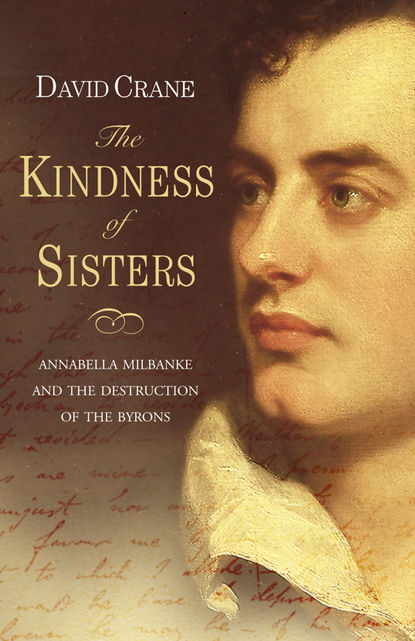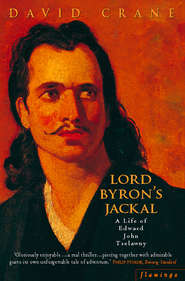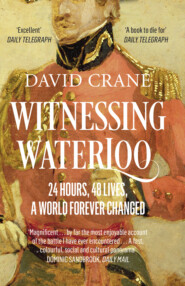По всем вопросам обращайтесь на: info@litportal.ru
(©) 2003-2024.
✖
The Kindness of Sisters: Annabella Milbanke and the Destruction of the Byrons
Настройки чтения
Размер шрифта
Высота строк
Поля
Beings who ne’er each other can resign;
It is the same, together or apart,
From life’s commencement to its slow decline
We are entwined – let death come slow or fast,
The tie which bound the first endures the last!
(#litres_trial_promo)
With her endless good-humour and sense of fun, her charm and talent for nonsense – her ‘damn’d crinkum-crankum’
(#litres_trial_promo) as he called it – Augusta also represented a simple release from the tensions of London life. Almost immediately she became an integral part of his routines, included in his invitations and plans, the novel half of a double-act that was part spontaneous and part calculation. ‘If you like to go with me to ye. Lady Davy’s tonight’, he wrote in a note that nicely captures the blend of pride and vanity with which he looked on her,
I have an invitation for you – There will be the Stael – some people whom you know – & me whom you do not know & you can talk to which you please – & I will watch over you as if you were unmarried & in danger of always being so … I think our being together before 3d. people will be a new sensation to both.
(#litres_trial_promo)
With anyone except Augusta this might have led nowhere, but with her chronic habit of subservience, it was only a matter of time before affection and familiarity slid into something more perilous. It is impossible to know with any absolute certainty when brother and sister became lovers, but if the malicious gossip of Caroline Lamb – or Byron’s own boast to Tom Moore that her seduction had cost him little trouble – has any substance it was probably only a matter of weeks or even days.
The mere use of the word ‘seduction’ in this context however – Byron at his coarsest – wilfully trivialises and misrepresents a relationship that he would always more honestly recognise as the most important of his life. If these things can ever be judged from the outside, it would seem that sex was always of secondary significance in their affair, on Augusta’s side to a limitless capacity for self-surrender, and on Byron’s to the expression of a kindness and generosity that was at the core of his personality.
And yet when that is said, his letters and verse make it clear that he inspired in the twenty-nine-year-old mother of three a passion that surprised them both with its violence and abandon. In the best known celebrations of their love it is always a platonic ideal of union that Byron is anxious to stress, but in Zuleika’s language in The Bride of Abydos we are almost certainly taken closer to the earthier reality of its early days. ‘To see thee, hear thee, near thee stay,’ Zuleika tells the man she believes to be her brother, in a passage which unconsciously echoes the startled self-discovery of Shakespeare’s Perdita in the great fourth act of A Winter’s Tale
And hate the night I know not why,
Save that we meet not but by day,
With thee to live, with thee to die,
I dare not my hope deny:
Thy cheek, thine eyes, thy lips to kiss,
Like this – and this – no more than this;
For, Allah! Sure thy lips are flame:
What fever in thy veins is flushing?
My own have nearly caught the same,
At least I feel my cheek, too, blushing.
(#litres_trial_promo)
Even when this is recognised, however, the seamless, almost inevitable transition from sister to lover was for Augusta only one stage in a more complete annihilation of self. ‘Partager tous vos sentiments,’ she wrote to him in November 1813, enclosing with the note a lock of her hair: ‘Ne voir que par vos yeux’ – ‘to share in your feelings, to see only with your eyes, to act only on your advice, to live only for you, that is my only desire, my plan, the only destiny that could make me happy.’
(#litres_trial_promo) ‘To soothe thy sickness,’ Zuleika continues in the same vein in the Bride,
watch thy health,
Partake, but never waste thy wealth,
Or stand with smiles unmurmuring by,
And lighten half thy poverty;
Do all but close thy dying eye,
For that I could not live to try;
For these alone my thoughts aspire:
More can I do, or thou require?
(#litres_trial_promo)
The tragedy for Augusta, however, was that Byron did require more, because for him the affair was more complex and guilt-ridden than her simple devotion could comprehend. In reckless moments he might publicly ridicule the moral parochialism of an incest taboo, but at other times it could disturb him with a fear that stopped him naming Augusta even in the privacy of his journal. ‘Dear sacred name, rest ever unreveal’d,’ he quoted from Pope’s Eloisa in his November 1813 journal, adding his own gloss: ‘At least even here, my hand would tremble to write it.’
(#litres_trial_promo)
Somewhere behind this fear lies the legacy of his Calvinist childhood, and yet as his deathbed shows, Byron was too intellectually and morally courageous to be cowed by the demons of the ‘Scotch School’. Throughout his life he habitually dramatised himself in terms of Miltonic defiance, but for all the swagger of Cain or Heaven and Earth, Byron’s sense of sin and exclusion was ultimately bound by this world rather than the next, his instinct for rebellion against man and not against God.
And this is perhaps the key to his behaviour with Augusta, because the fear he had of what they had done was less to do with a theological sense of sin than the growing recognition that he was prepared to push his defiance of convention to any limits. In his affair with Caroline Lamb the previous year, the courage or recklessness had seemed almost exclusively hers, but as he paraded Augusta in London and followed her to Newmarket and talked of exile together, as he trailed the affair in his letters and flaunted their incest in his poetry – as he pitted the Byrons against the world in the most public and symbolic way he could find – he discovered in Augusta not just his ideal refuge but his perfect weapon.
It would take the imaginative sympathy of a novelist to do justice to the complex and contradictory rhythms of Byron’s life as it slid towards open rupture with the society that had embraced him only eighteen months earlier. If one simply believed the evidence of his journal for the winter of 1813–14, the frustrations of the previous year were as acute as ever, but as one turns from that to his verse, the contrasting boldness of the poetry suggests rather an artist and man growing into a defiant sense of his own power and vocation.
In the space of a few days in November 1813 he wrote The Bride of Abydos, and the following month, in another spasm of creative energy, threw off the third of his Eastern tales, The Corsair. In his letters and journals he was as dismissive as one would expect of these achievements, and yet no amount of Byronic self-mockery or defensive irony could deflect the central importance these poems had for him.
The Bride of Abydos, written with Augusta and the theme of incest constantly in mind, had been, in his own words, his first ‘complete’ poem but in its own harsher way The Corsair was every bit as subversive. He had written the Bride in the first place to keep himself sane, but with its violent and antisocial rage The Corsair was in itself a kind of deliberate public madness, brilliantly conceived simultaneously to alienate and seduce his public. ‘Fear’d, shunn’d, belied, ere youth had lost her force,’ Byron described his hero whom he must have known by now his readers would associate with himself.
He hated man too much to feel remorse,
And thought the voice of wrath a sacred call,
To pay the injuries of some on all.
He knew himself a villain – but he deem’d
The rest no better than the thing he seem’d;
And scorn’d the best as hypocrites who hid
Those deeds the bolder spirits plainly did.
He knew himself detested, but he knew











